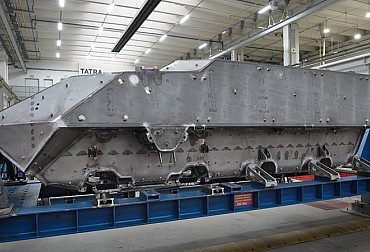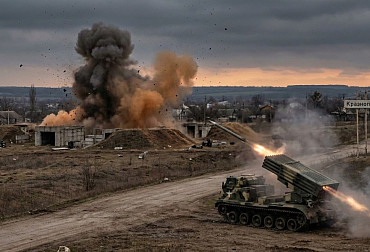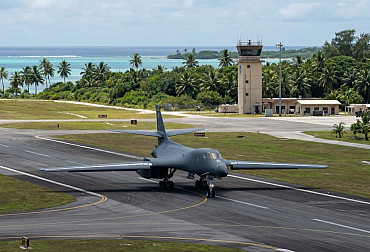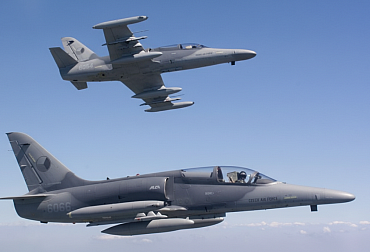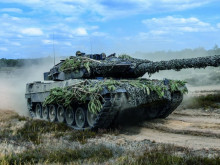The Czech Armed Forces will gain effective protection against drones and missiles
The Ministry of Defence of the Czech Republic has signed a contract for the purchase of 48 Israeli I-Derby Long Range anti-aircraft missiles, known as I-Derby ER, for CZK 2.8 billion. The ministry made the announcement following a recent visit to Israel by Prime Minister Petr Fiala, who came to support the Jewish state in its war against Hamas terrorists. By 2027, the Czech army should acquire an effective means of destroying unmanned aerial vehicles, helicopters, aircraft and missiles with a range of up to 80 km. The missile delivery will complement the expected Israeli-made Spyder anti-aircraft system, which will replace the old Soviet 2K12 anti-aircraft missile complexes in the Czech arsenal.
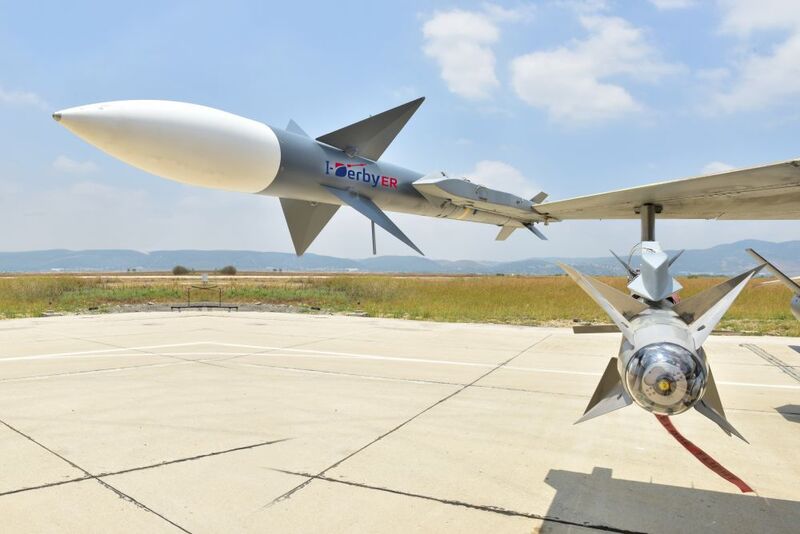
"The contract for the procurement of 48 Israeli I-Derby Long Range anti-aircraft missiles has been mutually signed as of today. There is now no obstacle to the acquisition of these munitions, which will give the IAF the capability to destroy unmanned aerial vehicles, helicopters, aircraft and cruise missiles," read a statement from the Defense Ministry on the X network, formerly Twitter. The ministry made the announcement shortly after informing the government of its intention to buy a key component of the modern air defence system that the Czech Republic began negotiating with Israel two years ago.
The Defence Minister recalled the importance of the contract in the current era of increasing global conflicts. "The war in Ukraine shows us how crucial it is to protect against attacks from the air, whether it is drones or standard air force," the head of the ministry, Jana Černochová, commented on the purchase after a government meeting. "In order for our soldiers to be able to defend us against these threats if necessary, we must equip them with modern technology, which is what these missiles are," Černochová added. The total price is to be CZK 2,839,438,800 excluding VAT.
These will be the latest type of missiles from the Israeli state arms company Rafael, which sells them under the name I-Derby ER (Extended Range). The manufacturer claims a range of up to 100 kilometres when used from fighter aircraft and says it is suitable for the world's most commonly used types of fighter aircraft, such as the F-15, F-16, F-18, Typhoon, Sukhoi Su-30, Mirage-2000 and Gripen. When deployed in anti-aircraft systems such as the Spyder, the range is reduced to 40 kilometres without a missile booster and 80 kilometres with a booster at 20 kilometres. These are almost twice the values of the older yet seemingly identical Derby missile type.
The manufacturer boasts state-of-the-art technology capable of responding to the dangerous challenges associated with a possible air attack. The I-Derby ER incorporates the Rafael software-controlled radar seeker, which allows real-time monitoring of all operational parameters using the supplied software. It is designed to take into account numerous attacks. Drone strikes, including suicide strikes similar to the Russian ones in Ukraine, or the mass rocket launches that Israel witnessed during the Islamist invasion of the Gaza Strip. Rafael also states that the operation is simple and the software's operation when deployed in combat is intended to be nimble and intuitive.
"The I-Derby ER incorporates an electronic countermeasures (ECCM) system designed to meet the challenges of aerial combat in hostile environments with exceptional operational flexibility adaptable to the customer's operational requirements," the manufacturer's presentation reads, adding that the missile's range and engine power can be adjusted to suit the needs of the deployment. "The missile's brain includes sophisticated algorithms to optimise the trajectory according to launch conditions and target behaviour," Rafael states.
The Israeli anti-aircraft missiles will be used as part of the 4-battery Spyder anti-aircraft complex. The Czech Republic agreed on its purchase with Israel in October 2021, and the ACR is expected to receive all four batteries under an interstate contract for CZK 13.7bn by 2026. It will be a variant of the Spyder CZE, which, in addition to range-specific modifications, may also mean its installation on the chassis of Czech-made Tatra trucks. Its use in practice will then be directly proportional to the needs and the current situation. Thanks to its high mobility, Spyder can be deployed to protect government buildings and other sensitive objects such as power plants, but it can also be deployed to protect soft targets and can quickly change position in the event of a specific imminent danger. Within the arsenal of the IAF, this new Israeli combination will soon replace the more than 40-year-old Soviet 2K12 Kub anti-aircraft set, which, with a maximum range of more than 20 kilometres, cannot compete with the current machines.
The following will be procured/provided under the contract:
- "I-Derby Long Range" missiles, including all necessary equipment using the "SALIS" project;
- spare parts for the missiles;
- technical equipment and facilities for the operation and maintenance of the missiles;
- integration of the I-Derby Long Range missile information system into the SHORAD ('Short Range Air Defence') information system;
- training of operators of the Spyder CZE anti-aircraft complex for the use of I-Derby Long Range missiles;
- a service contract to ensure integrated logistics support and a long-term life cycle for 20 years.
The current acquisition also includes an option for a possible future purchase for up to 12.6 billion crowns, where, if activated, hundreds more missiles in 6 categories can be acquired. "As with other contracts, I consider it important that Czech companies will be involved," Defence Minister Černochová said in an official statement from the ministry, which further specified that Czech companies RETIA and Vojenský technický ústav will cooperate on the project, specifically on the production of missile containers, the provision of integrated logistics support and the integration of information systems. The contractor has committed to spend at least $14 million in the Czech Republic, or nearly CZK 325 million.











